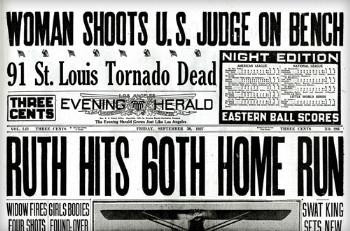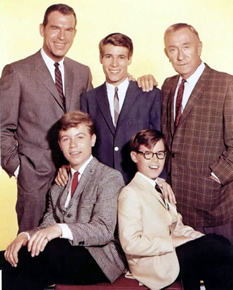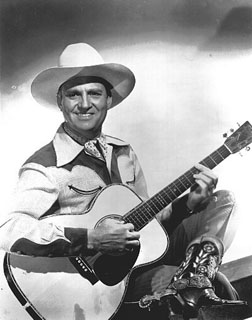"Freedom is never more than one generation away from extinction. We didn't pass it to our children in the bloodstream. It must be fought for, protected, and handed on for them to do the same, or one day we will spend our sunset years telling our children and our children's children what it was once like in the United States where men were free." - President Ronald Reagan
Monday, September 30, 2024
Mexico picks a fight with Spain
Mexico picks a fight with Spain - American Thinker https://t.co/ZozobIDIr7
— Silvio Canto. Jr. (@silvio_canto) September 30, 2024
Down in Mexico, Claudia Sheinbaum will assume the presidency on Oct. 1.
She will replace President Andrés Manuel López-Obrador who was her mentor, as they tell me south of the border.
Prime Minister Sánchez — who is a member of the Spanish Socialist Workers Party (PSOE) — has described Sheinbaum’s government as “progressive,” and lamented her snub of the Spanish monarch.“We cannot accept this exclusion,” he said in a press conference on Wednesday in New York, where he was attending the United Nations General Assembly. Sánchez said that not sending a diplomatic delegation to Sheinbaum’s inauguration is “a sign of protest against an exclusion that we consider unacceptable and inexplicable, given the level of relations between Spain and Mexico, two ‘brother’ countries.”
1958: "The Rifleman" made its US TV debut

Chuck Connors used to play baseball. In fact, he played with the Dodgers and Cubs in 1949-51. Connors, who was 6'5 and 190 pounds, never hit much: .238 in 67 major league games!
On this day in 1958, "The Rifleman" made its debut on US TV and an entire generation of boys like me grew up watching it. Even now, I catch episodes on Saturday mornings over at AMC.
The show's message was simple: right and wrong, a widowed father who was a good role model and a cast of characters that we enjoyed every week.
Happy # 81 to Marilyn McCoo
Happy birthday Marilyn McCoo, a neat lady who was born in New Jersey on this day in 1943.
Do you remember 'One less bell to answer", "Last night I didn't get to sleep at all" and other great songs by The Fifth Dimension?
It was Marilyn McCoo as the lead female vocal in some many of the group's hits!
In the 1970's, Marilyn and her husband Billy Davis Jr had several hits. In the 1980s, she hosted "Solid Gold" on TV.
Beautiful lady with a beautiful voice!
1972: Clemente and # 3,000

The great Roberto Clemente got # 3,000 on this day in 1972. It turned out to be his last major league hit and at-bat because he died in a plane crash 3 months later.
September 30, 1927: Babe Ruth hit # 60!
Sunday, September 29, 2024
Kamala Harris: Woman on the run
Kamala Harris: Woman on the run - American Thinker https://t.co/WESyBmbaVk
— Silvio Canto. Jr. (@silvio_canto) September 29, 2024
On the old movie channel, you can catch Woman on the Run, or the confusing story of a woman running for information. It’s hard to follow, but I love those black and white movies, where women were always so elegant. They even wore dresses and high heels to catch a baseball game.
On Friday, V.P. Harris was another woman on the run. The difference is that V.P. Harris knew exactly what she was running from, or the truth about a border that I’ve got to admit isn’t getting better all the time to paraphrase the old Beatles tune.
Friday’s visit coincided with the release of some numbers about people who crossed and were released among us. It’s a horror story, to say the least. Let’s go farther with Emily Jashinky:
As if to illustrate the point, the VP got doused with a metaphorical bucket of cold water on Friday afternoon just hours before she planned to deliver remarks from the border town of Douglas, Arizona. Republican Rep. Tony Gonzalez posted a letter he received this week from Immigration and Customs Enforcement revealing nearly half a million noncitizen convicted criminals are in the country, some of them outside of detention.
“As of July 21, 2024, there were 662,566 noncitizens with criminal histories on ICE’s national docket, which includes those detained by ICE, and on the agency’s non-detained docket,” an agency official wrote. “Of those, 435,719 are convicted criminals, and 226,847 have pending criminal charges.”
Fox News broke down the data by category, noting: “Those include 62,231 convicted of assault, 14,301 convicted of burglary, 56,533 with drug convictions and 13,099 convicted of homicide. An additional 2,521 have kidnapping convictions and 15,811 have sexual assault convictions. There are an additional 1,845 with pending homicide charges, 42,915 with assault charges, 3,266 with burglary charges and 4,250 with assault charges.”
That’s a lot of people with criminal records, to state the obvious. Of course, there are two problems here.
First, we are seeing Exhibit A of what happens when immigration laws are not enforced. Once upon a time, we vetted people who wanted to come to the U.S. My family was vetted before we came here. It seemed totally normal until someone in the Biden administration decided that coming to the U.S. was an international “right.” Yes, a right, if you know what I mean!
Second, V.P. Harris does not take questions from a friendly press. I’m sure she would have gotten some questions about the aforementioned numbers. Unfortunately, she waved goodbye to the reporters and moved on. So we will never know how the V.P. feels about letting all of these criminals into the U.S.
So the woman is once again on the run, and the voters are left without information.
PS: Check out my blog for posts, podcasts, and videos.
Happy # 75 to Steve Busby
Happy birthday Steve Busby who was born in Burbank, CA, on this day in 1949.
Some of us are old enough to remember Steve Busby the pitcher not just the man who called Rangers' games on TV and radio.
Steve played at USC. He broke with the Royals in 1972 pitching a complete game against Minnesota.
In the early 1970's, or before injuries cut short his career, Busby seemed like a man headed for the Hall of Fame: 54 wins over first three full seasons along with 45 complete games and 2 no-hitters before he was 24!
In fact, Sporting News had him on the cover: "Unlimited future"!
After baseball, Steve became an excellent radio and TV play by play analyst.
"My Three Sons" made its debut in 1960
What can I say? I used to love this show not realizing that I would have 3 sons someday.
The original series was about widower Steve Douglas raising three sons with the help of the one and only Uncle Charlie.
The show ran until 1972. The family expanded when Douglas remarried and new characters came into the story.
By the way, McMurray died in 1991. He had a long film career before this show. Don Grady, who played Robbie, died in 2012. William Demarest, who played Uncle Charlie and served in World War I, died in 1983. The other two sons are still living.
A great show now available for sale..........
We remember Jerry Lee Lewis. (1935-2022)
We remember Jerry Lee Lewis, one of the first rockers in rock history. He was born on this day in 1935 in Louisiana and died in 2022.
1954: Willie Mays and "the catch"
Willie Mays took playing center field to a new level in game 1 of the 1954 World Series. He made an amazing over-the-shoulder catch of a shot hit by Cleveland Indians first baseman Vic Wertz. It would have likely been a triple or even an inside of the park depending on how the ball bounced around in deep centerfield. Instead, it was a long out!
"The catch" started the legend of Willie Mays, from playing defense to being perhaps the most complete player ever.
We remember Gene Autry (1907-1998)
Gene Autry was born in Tioga, Texas and grew up here and Oklahoma. Where else?
We remember him for songs and movies. "Rudolph the red nosed reindeer" is the second all-time best selling Christmas single, i.e. 30 million copies. He is the only entertainer to have all five stars on the Hollywood Walk of Fame, one each for Radio, Recording, Motion Pictures, Television, and Live Theater performances.
And he owned the Angels, the AL baseball team in Los Angeles. Sadly, he never saw his Angels win the 2002 World Series.
Autry was one of the most famous people of the 20th century.
Saturday, September 28, 2024
Well, let’s talk about men
Well, let’s talk about men - American Thinker https://t.co/eD4sp6ntid
— Silvio Canto. Jr. (@silvio_canto) September 28, 2024
click to read:
https://www.americanthinker.com/blog/2024/09/well_let_s_talk_about_men.html
The other gender gap, or the one that no one likes to talk about, is that Trump is leading with men. In fact, he is leading by a lot. So it makes sense for Trump and the GOP to get as much of the male vote out as possible.
This is what we read from Brett Samuels:
Former President Trump is banking on his appeal to male voters to offset his struggles with female voters, with the gender gap in support between him and Vice President Harris set to play a key role in November’s election.
Trump has attended multiple Ultimate Fighting Championship (UFC) events, joined professional golfer Bryson DeChambeau for his YouTube show, appeared with controversial internet streamer Adin Ross and sat down with podcasters such as Theo Von and influencer and wrestler Logan Paul.
Those appearances are part of a broader effort by the former president’s campaign to connect with young men, a group viewed by both campaigns as among the more persuadable ones in the election.
‘Democrats have been losing ground with male voters cycle after cycle because Kamala Harris’ agenda to raise costs, hike taxes, open the southern border, and weaken America in the eyes of the world has made all Americans worse off,’ senior Trump campaign adviser Brian Hughes said in a statement. ‘Male voters know that if you want more money in your pockets, safer communities, and peace through strength, President Trump is the only choice on November 5.’
The differences between male and female voters are fascinating. A recent poll said that young women think that abortion is the #1 issue. On the other hand, the young men are more interested in the economy and national security.
The growing gap may have an impact, if it isn’t already, on dating, marriage, and social cohesion overall. Where is this going? I don’t know, so I just hope that more men vote than women.
Get those men out to vote!
P.S. Check out my blog for posts, podcasts, and videos.
September 28 and Ted Williams

On this day in 1941, Williams was batting .399955 when he woke up in the last day of the season. He decided to play a double header against the A's. Williams went for 6-for-8 and finished the season at .406.
On this day in 1960, Williams hit a home run in his last at bat in the major leagues.
Let me add this note: Williams also hit .388 in 1957!
We remember Grant Jackson (1942-2021)
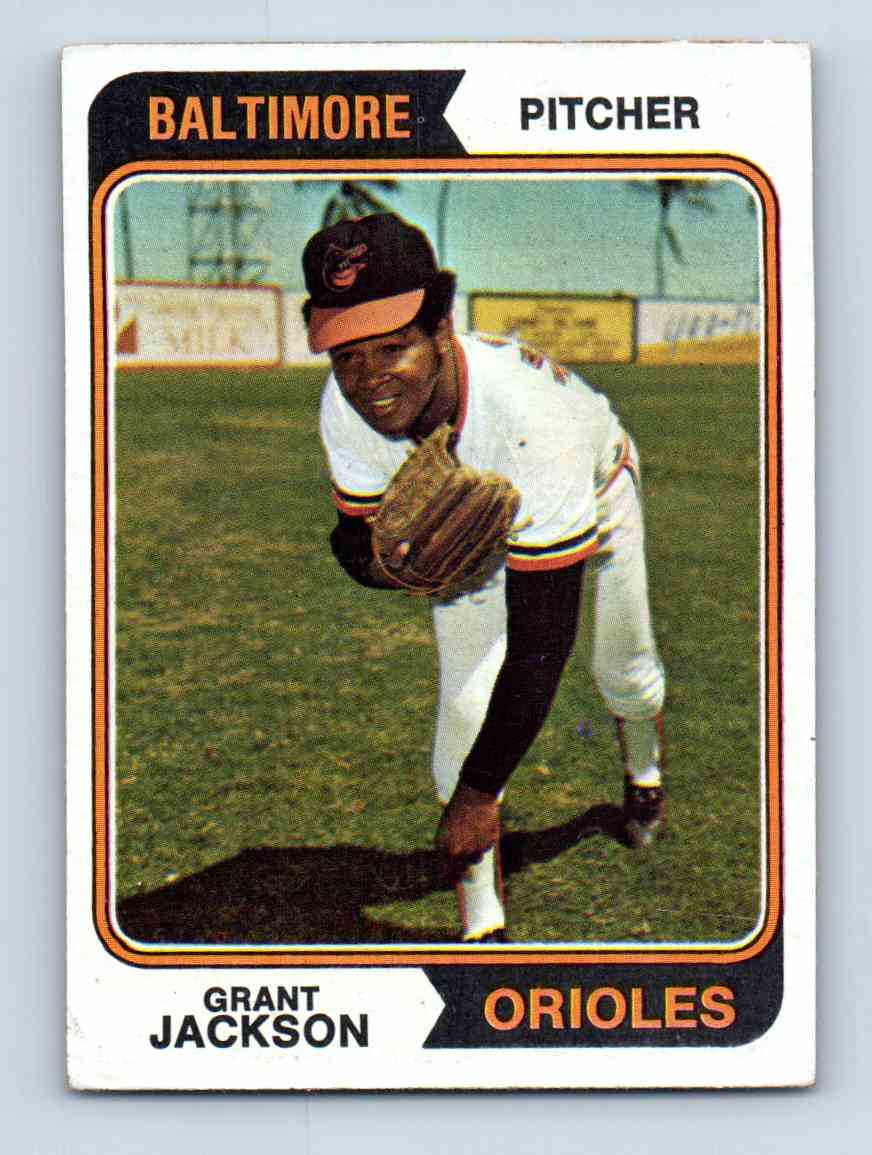
We remember Grant Jackson who was born in Florida on this day in 1942 and died February 2021.
Jackson broke with the Phillies in 1965. He had a very good year in 1969: 14-18 with 13 Complete games, a 3.38 ERA and 180 K's.
In 1971, Grant was traded to the Orioles and Earl Weaver turned him into a bullpen specialist. He saved 12 games for the AL East champions in 1974.
In 1977, Jackson went to the Pirates and continued his great work out of the bullpen.
He played for Pittsburgh when they beat Baltimore in the 1979 World Series. In fact, he won game 7 and retired 7 Orioles to keep the Pirates in the game.
A great pitcher and very nice man as well.
September 28, 1941: Williams showed some real character playing that doubleheader
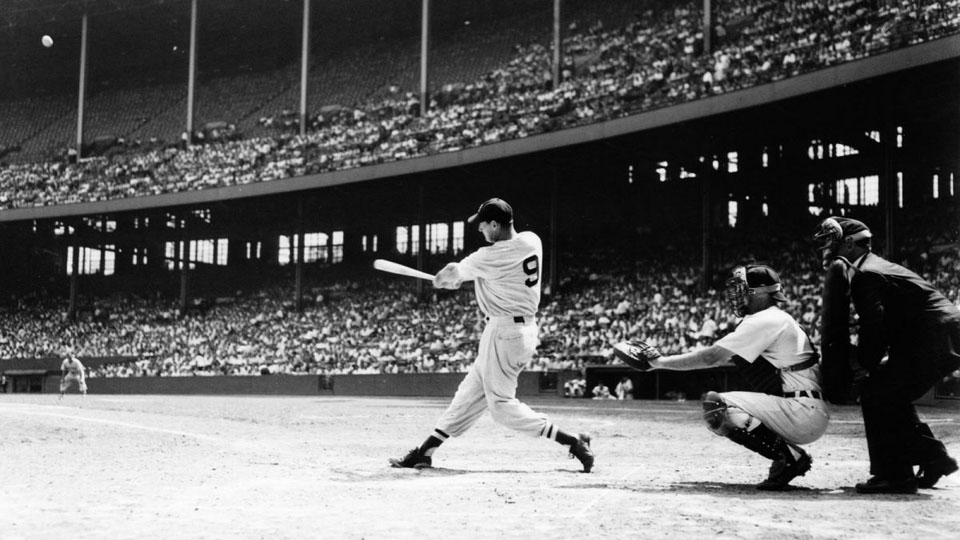
---------
1941 was the year of DiMaggio's 56 game hitting streak, the last summer before Pearl Harbor changed everything and Ted Williams ended up with a .406 batting average.
It is remarkable to go back and see Williams' consistency:
The eventual seventeen-time All-Star began the season going one-for-one with a 1.000 batting average. Over the rest of the season, his average never fell below .308, and was almost always over .400. In fact, on July 24, it stood at .397. It would never again fall below .400. Williams wrapped up 1941 at 185-456, good for an average of .406. While Williams’ batting average garnered all of the attention in 1941, he also led the league in home runs (37), base on balls (147), runs (135), slugging average (.735), and on base percentage (.551).
This is where Ted Williams' talent and tenacity was displayed, as remembered in this article by Bill Pennington years ago:
Inside his room at Philadelphia’s Ben Franklin Hotel on Saturday, Sept. 27, 1941, Ted Williams was jumpy and impatient.That might have been an apt description of the mercurial Williams at most times, but on this evening he had good cause for his unease.His batting average stood at .39955 with a season-finale doubleheader to be played the next day at Shibe Park, home of Connie Mack’s Athletics.
Since batting averages are rounded to the next decimal, Williams could have sat out the final two games and still officially crested baseball’s imposing .400 barrier.At the time,
Williams said, “If I’m going to be a .400 hitter, I want more than my toenails on the line.”
As we learned later, Williams had many character flaws. He wasn't the nicest guy in the clubhouse or with the media. He couldn't even return a salute to the fans at Fenway who cheered his last at bat, a home run, naturally.
Nevertheless, his performance in the last game of 1941 is a lesson for us all. He could have sat out the double header and hit .400, or the rounded version of .3995.
Instead, he put everything on the line and came out with a .406 average.
Love him or hate him, I have to love that he was not afraid to put everything on the line.
Friday, September 27, 2024
Kamala can't hit a curve ball
Kamala can't hit a curve ball - American Thinker https://t.co/sDxa2UYmjy
— Silvio Canto. Jr. (@silvio_canto) September 27, 2024
As a baseball fan, I’ve read a few player profiles, or scouts’ reports about a player’s skills to make it to the majors. The objective is to find a five-tool player or Willie Mays. Most of the time the reports rate the players on hitting, running, and fielding. Many times, the scouting report tells you that someone has talent but can’t hit the curve ball. It’s hard to get to the majors if you can’t hit AA pitching unless you are a good defensive catcher who can work with pitchers.
Enter prospect Kamala Harris. She can’t hit the curve ball period, no matter how many times they throw questions at her. She is in a different league and it ain’t the majors.
The Stephanie Ruhle interview was embarrassing. Let’s check it out:
Vice President Kamala Harris on Wednesday refused to explain how she intends to pay for her pricey economic plan if Republicans in Congress block her proposed presidential agenda, one of several questions she dodged during her first one-on-one interview with a major news network since becoming the Democratic nominee.
“If you can’t raise corporate taxes, or if the GOP takes control of the Senate, where do you get the money to do that? Do you still go for those plans and borrow?” MSNBC host Stephanie Ruhle asked Harris about her handout-heavy agenda.
“Well, but we’re going to have to raise corporate taxes,” the Democratic nominee responded, without explaining how she intends to do that without congressional support.
“We’re going to have to make sure that the biggest corporations and billionaires pay their fair share,” Harris continued. “That’s just it. It’s about paying their fair share.”
Well, it’s always about the rich not paying their share. I guess we’d be better off if only the rich paid up rather than buy government bonds. It’s amazing, isn’t it?
Of course, the real problem is that she can’t answer questions even when the reporters are desperately trying to help her win. The three journalists at the African American Journalism meeting tried but couldn’t. Oprah tried but couldn’t. Stephanie of MSNBC even got her to talk about making fries but her interview was a bust too.
Later Stephanie complained to her pal Nicole that she just won’t answer the question. No she didn’t, because she can’t. This is probably the most unqualified candidate to run for president in our lifetime. We know it and I think that a lot of Democrats are getting it now.
When does Joe get back on the ticket and do it for the country? What he did in July. only the reverse. Crazy thought? Probably, but it’s been a crazy year, hasn’t it?
In the meantime, the scouts have made it official: Nice swing but can’t hit the curve ball.
P.S. Check out my blog for posts, podcasts and videos.
Happy # 484 to the Jesuits!
The Jesuits have been a significant force in the Catholic faith for a long time. On this day in 1540, Pope Paul III approved Ignatius’ outline of the Society of Jesus, and the Jesuit order was born. Like any group, they are not perfect and there is always room to criticize. At the same time, their contributions to education must be celebrated.
1981: Nolan Ryan no-hitter # 5

September 2014: WE REMEMBER DEREK JETER WITH BARRY CASSELMAN, LONG TIME YANKEE FAN.

WE REMEMBER DEREK JETER WITH BARRY CASSELMAN, LONG TIME YANKEE FAN...Listen in now at http://t.co/8ssTS2udL6. #BlogTalkRadio
— Silvio Canto, Jr. (@SCantojr) September 26, 2014
1973: Nolan Ryan 383 K's in one season
 We remember Nolan Ryan on this day in 1973. He struck Rich Reese for # 383 and a new season record.
We remember Nolan Ryan on this day in 1973. He struck Rich Reese for # 383 and a new season record. Ryan finished 1973 with a 21-16 record, 2.87 ERA, 2 no-hitters, finished second in the Cy Young Award voting to Jim Palmer and got 383 K's.
Happy # 75 Mike Schmidt
------------
We say happy birthday to Mike Schmidt, one of the greatest right handed power hitters in major league history. He was born in Ohio on this day in 1949.
Mike broke with the Phillies in 1972. He led the NL in HR in 1974, 1975 and 1976 plus NL MVP in 1980, 1981 and 1986. Overall, he retired with 548 HR & 1,595 RBI. Great player. He also played for some very good Phillies teams.
Tags: Mike Schmidt To share or post to your site, click on "Post Link". Please mention / link to the My View by Silvio Canto, Jr. Thanks!
Thursday, September 26, 2024
Regrets… Mark's had a few
Regrets… Mark's had a few - American Thinker https://t.co/FRUPMmfHVd
— Silvio Canto. Jr. (@silvio_canto) September 26, 2024
As we understand, Facebook Mark is done with politics. I guess that Zuckerberg wants to move on and leave politics behind. According to news stories, he has a few regrets:
Meta CEO Mark Zuckerberg admitted Monday that the Biden administration pressured Facebook to censor COVID-19 content and acknowledged it was wrong to stifle The Post’s coverage of Hunter Biden’s infamous laptop.
In an explosive letter to House Judiciary Committee Chairman Rep. Jim Jordan (R-Ohio), Zuckerberg wrote that “senior Biden administration officials, including the White House, repeatedly pressured” Meta to “censor” content related to the coronavirus pandemic in 2021
The content the Biden administration requested that Meta take down included “humor and satire,” according to the Facebook founder, and he said he regrets complying with certain demands.
Okay, Mark. We forgive you, but hope that you understand what you did. Facebook's COVID policy destroyed reputations and may have cost people a few jobs. It certainly got some of my friends suspended in Facebook. The "laptop" denied voters the truth during a presidential debate. It allowed 50-something charlatans to sign a letter calling the laptop Russian disinformation.
What is going on? Maybe Mark is being honest and regretting what he did. As a Christian, I believe in forgiveness and will accept his regrets. At the same time, maybe Mark is looking ahead to a Trump presidency in 2025 and choosing to be on the right side of history, as they like to say.
Best of all, now we know that COVID and the laptop stories ended up impacting a presidential election. And Mark was in the middle of it all. I hope that Mark understands that some of us are pretty angry about that.
P.S. Check out my blog for posts, podcasts and videos.
We remember Olivia Newton John (1948-2022)

We remember Olivia Newton John who was born on this day in 1948 in Cambridge, England and moved to Australia at age 5 with her parents. She died in 2022 after a long battle with cancer.
September 26, 1969: "Abbey Road" by The Beatles released in the US
The Beatles recorded "Abbey Road" in the spring and summer of 1969. It was eventually released in September 1969 in the UK and a week later in the US.
Abbey Road was special because of Side 2, or the medley.
How successful was Abbey Road? It included 2 of George Harrison's finest songs: "Something" and "Here comes the sun".
John Lennon had "Come together" and the very long "I want you she's so heavy" that goes on forever.
Ringo had "Octupus' garden", maybe his best composition.
And Paul had several lead vocals.
1960 this week: The Kennedy-Nixon debates
Back in 1960, millions of Americans tuned in for a real "TV first" this week. They watched a debate by the two major presidential candidates running for president in 1960.
Who won? Did the debates impact the vote?
Senator Kennedy won by 114,000 votes out of 70 million cast that day. It was 49.72% vs 49.55%.
The conventional wisdom is that JFK won "the video" and Nixon won "the audio".
Again, your guess is as good as mine. It's like losing the pennant by one game and arguing about what "one game" made the difference.
What impact did it have?
Senator Kennedy hit the Eisenhower administration very hard about the growing communist menace in Cuba. His debate comments actually had an impact on many Cubans, like my father, who were following the debates by shortwave radio. Sadly, President Kennedy dropped the ball at The Bay of Pigs the next spring. He contradicted with his actions what he promised at the debates.
What else do we remember from the 1960 presidential debates? Vietnam was not a topic in the Kennedy-Nixon debates but it consumed the nation in the 1960's.
In 1960, we learned an important lesson. Debates are important and we should continue the tradition. However, the reality of the presidency often overwhelms campaign promises or 'tough talk" at the debates.
For a look back at the 1960 campaign, check out.
1971: Jim Palmer makes it four 20-game winners for Baltimore
Jim Palmer and the Orioles made a little history on this day in 1971. He won his 20th and joined teammates Mike Cuellar, Dave McNally & Pat Dobson as 20-game winners.
A few days later, the O's swept the A's in the ALCS. Then they lost to the Pirates in the World Series.
A great moment in O's history: Four 20-game winners in one staff!

